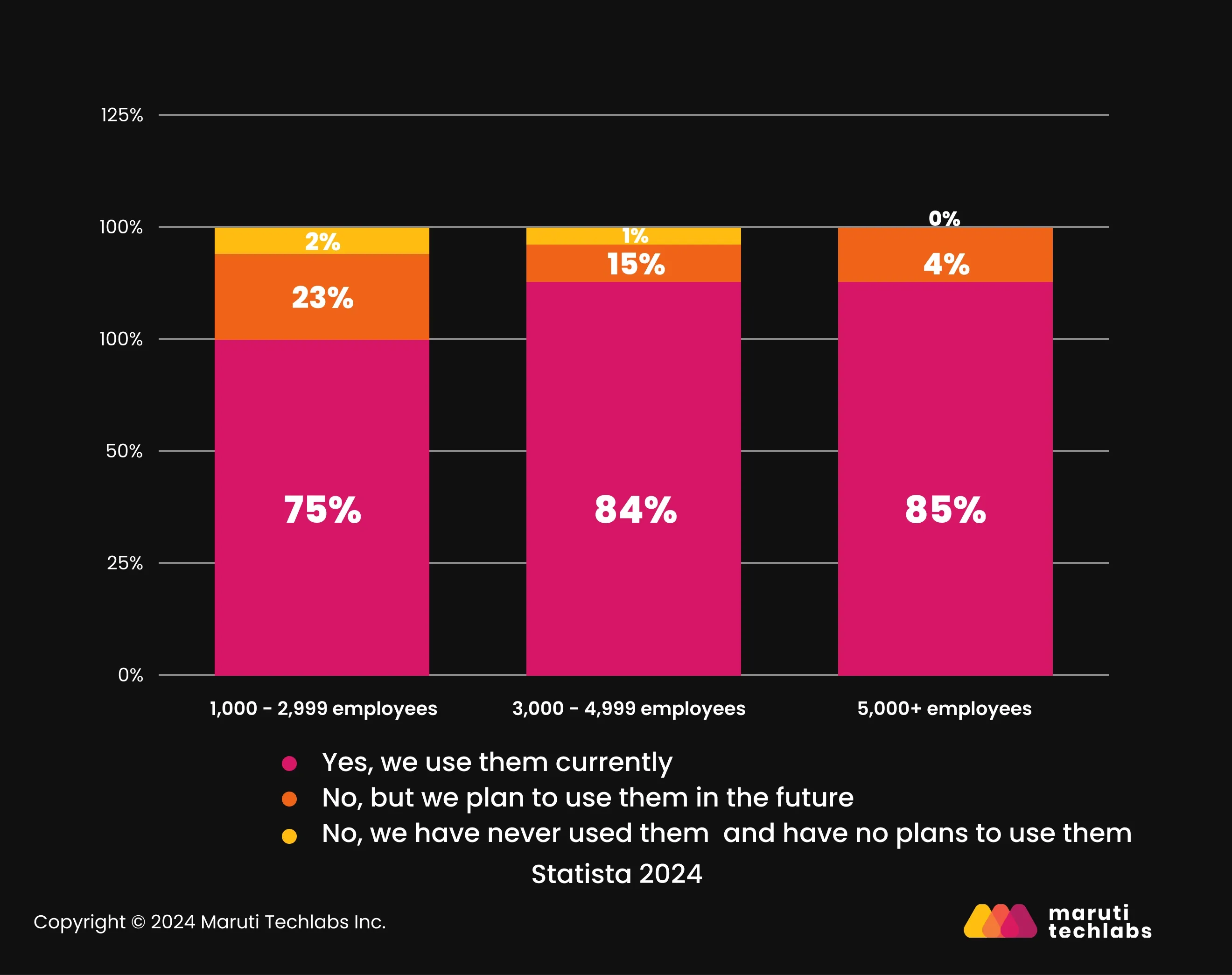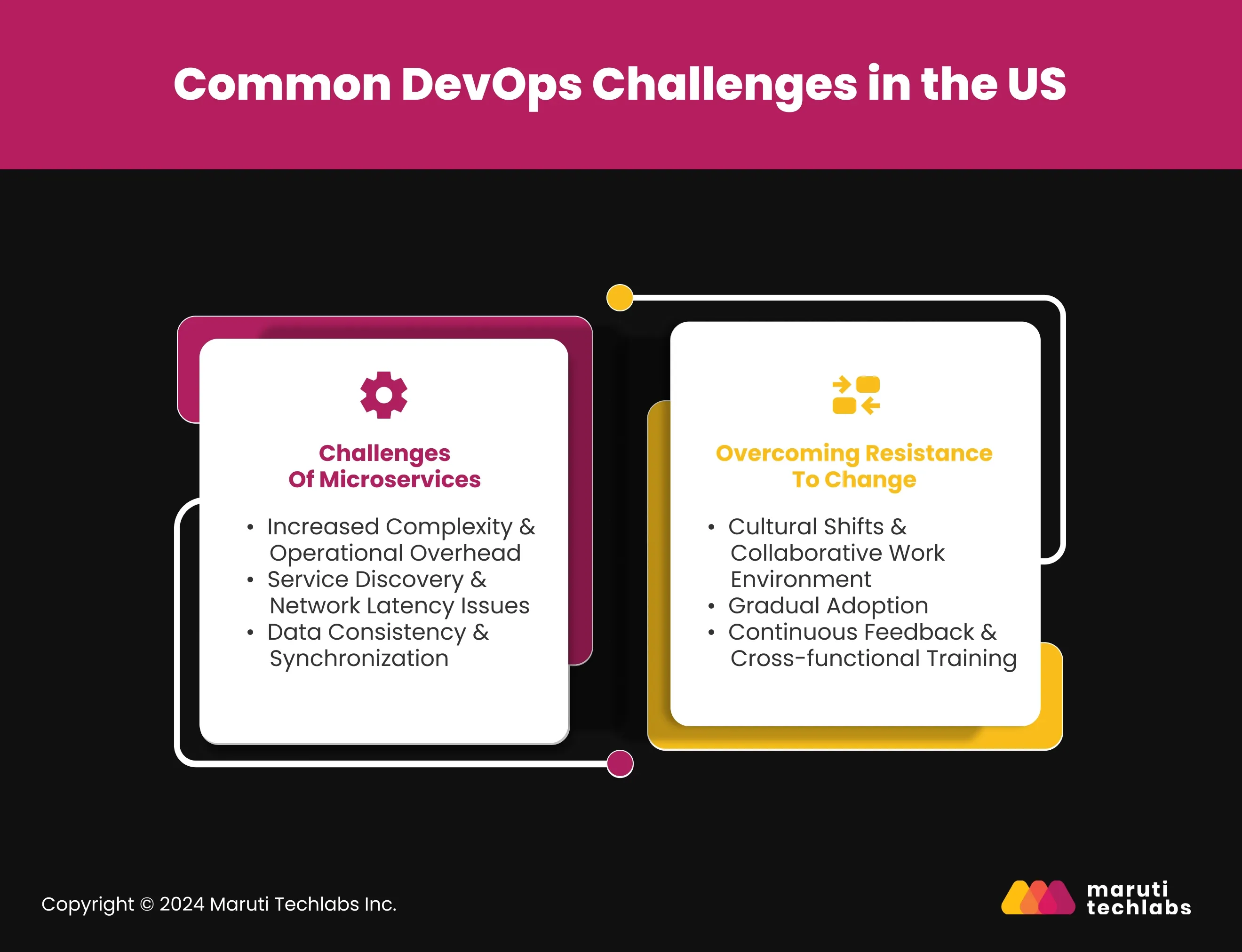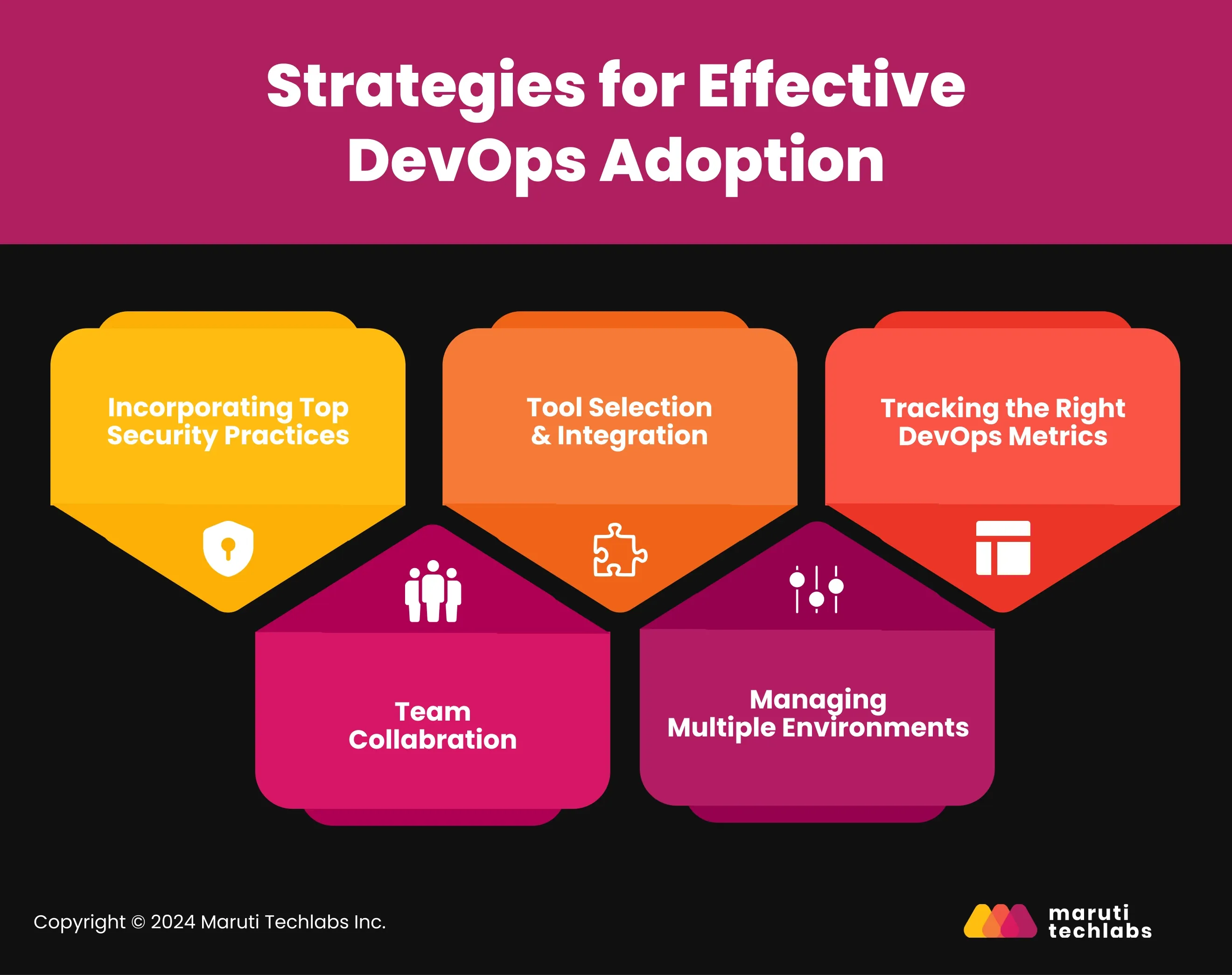

How to Tackle Common DevOps Challenges in the US?






DevOps challenges are a growing concern in modern software development. Organizations find it difficult to deliver high-quality software quickly, often leading to hurdles like integration problems, miscommunication, and security vulnerabilities.
Modern software systems are more complex than ever, which makes it even harder for teams to work together efficiently. Companies must embrace innovative DevOps practices to stay ahead in the competitive landscape.
By implementing strong methodologies, teams can simplify development processes, foster better teamwork, and boost software performance. This guide will help you learn about the key DevOps challenges organizations face today and explore practical solutions to overcome them.
Transitioning from legacy systems to microservices can significantly improve how teams build and manage software. In the past, developers created applications as large, single units called monolithic architectures, which made updates and changes difficult.
Now, many companies embrace microservices, breaking applications into smaller, independent parts. This approach offers benefits like flexibility and scalability. According to Statista, 85% of respondents from large organizations with over 5,000 employees report actively using microservices.

If one part of the application needs more resources, teams can scale it up without affecting the rest. You can develop and update each microservice separately, which speeds up the overall process.
However, there are also DevOps challenges, such as managing hefty services and ensuring they communicate effectively. As organizations embrace microservices, they must also navigate the common DevOps challenges that arise during this transition. Let’s observe these challenges.
Common DevOps challenges in the US can significantly impact software development and delivery. Let’s learn about the numerous DevOps challenges and their solutions.

Independent services increase the architecture's complexity. As a result, teams will have to frequently convey updates and monitor every service, creating higher operational costs and resource utilization.
As services interact over a network, delay is inevitable. Finding and connecting to the right service in time becomes tough, affecting performance and the overall user experience, especially during peak usage hours.
It is difficult to maintain information accurately in various services. For instance, changes in one service must necessarily create repercussions for others to avoid confusion; hence, effective data management strategies are required.
Encouraging teamwork helps create a culture where everyone works effectively. Leaders should model collaboration and reward team efforts to reinforce this behavior.
Starting with small projects allows teams to manage change better without feeling overwhelmed. This approach helps teams build confidence and gradually expand their approach.
Ongoing education and feedback can help the team increase their skills and learn new processes effectively. Regular training programs ensure that all team members are up to date about best practices as well as tools.
Addressing these DevOps challenges can improve organizations' ethical practices and software delivery. Understanding these DevOps challenges is crucial, as it sets the stage for integrating effective strategies to enhance microservices development.
Companies can implement several strategies to tackle common DevOps challenges. Here are a few of those strategies.

With DevOps, security has to be integrated into every phase of the development lifecycle. The adoption of the DevSecOps practice integrates automated security checks that are embedded into CI/CD pipelines. Now, let's understand the benefits of integrating security practices.
Effective collaboration is crucial in a DevOps setup due to the distributed nature of teams and services. A shared understanding of responsibilities ensures smoother communication and alignment across development, operations, and security teams. Here’s how this feat can be achieved.
Choosing the right tools is a cornerstone for implementing DevOps effectively. The tools must align with the organization’s goals, seamlessly merge into workflows, and offer scalability. Let’s explore key considerations and strategies for successful tool selection and integration.
A DevOps team must manage the development, testing, and production environments. Varying requirements and configurations can make maintaining consistency and minimizing errors challenging. Here are some strategies that can help address challenges by managing different environments.
Selecting and tracking the right metrics is vital for continual improvement. These metrics should measure technical performance and reflect how DevOps practices contribute to business outcomes. Let’s observe the key considerations for tracking implementations.
Organizations can effectively address common DevOps challenges and enhance their microservices development efforts by implementing the abovementioned strategies.
The transition from legacy systems to microservices presents key DevOps challenges, including increased complexity, security concerns, and the need for effective collaboration. However, addressing these DevOps challenges is crucial for successful DevOps adoption, as overcoming them enhances software delivery and overall efficiency.
The future holds emerging AI-based DevOps tools that will make it essential for teams to remain adaptable. Continuous learning and adaptation are vital for tackling future challenges and fostering a culture of improvement.
Maruti Techlabs specializes in creating tailored DevOps solutions that can enhance your software development and deployment cycles equipped with the latest security practices. Get in touch for expert guidance on the effective implementation of microservices for your business applications leveraging our DevOps team.
Firms encounter various DevOps challenges, including cultural resistance, tool integration issues, and skill gaps within teams. Address these DevOps challenges to create an efficient and collaborative development environment.
Organizations should adopt DevSecOps methodologies to overcome security-related DevOps challenges. This approach integrates security practices into the development process, ensuring vulnerabilities are identified and addressed early in the software lifecycle.
In DevOps, automation significantly reduces manual errors and speeds up processes. Teams can tackle common DevOps challenges more effectively by automating testing, deployment, and monitoring. It will also improve overall efficiency.
Team collaboration is crucial for overcoming DevOps challenges because it fosters communication and shared responsibility among development and operations teams. This collaboration speeds up problem resolutions and leads to project success.
Companies should track metrics like deployment frequency, change failure rate, and mean time to recovery. These metrics provide insights into how effectively teams are addressing DevOps challenges and improving their processes over time.


